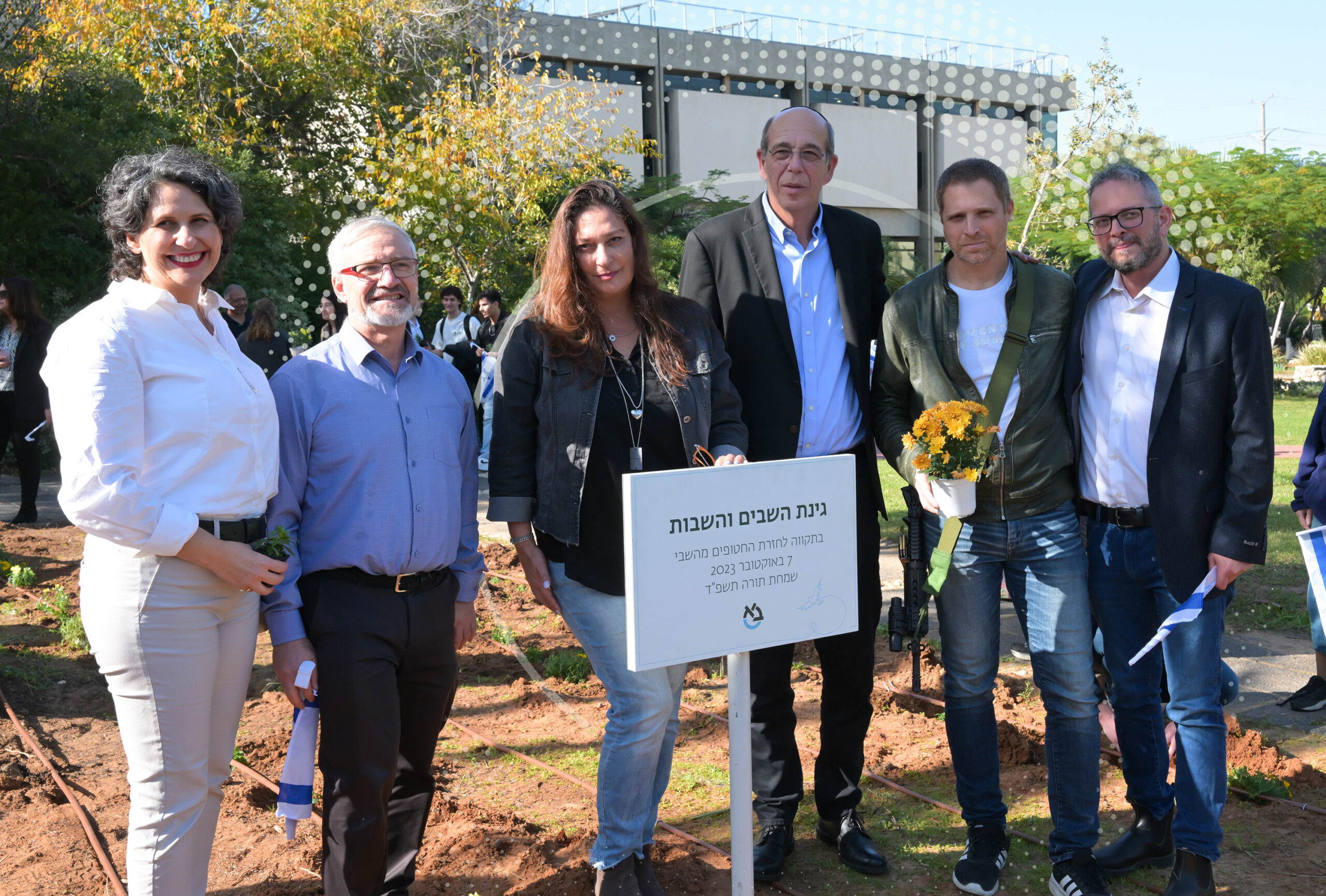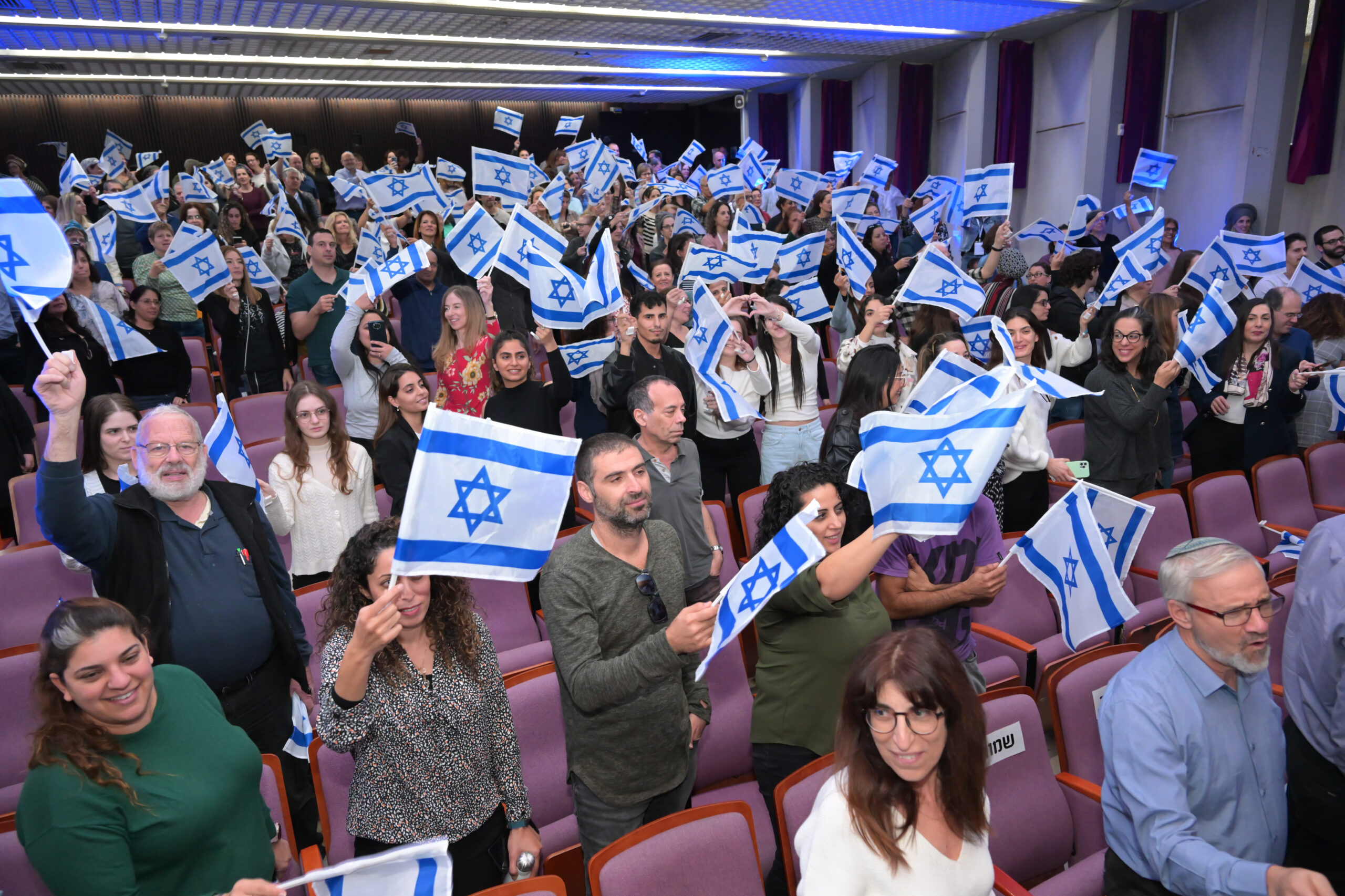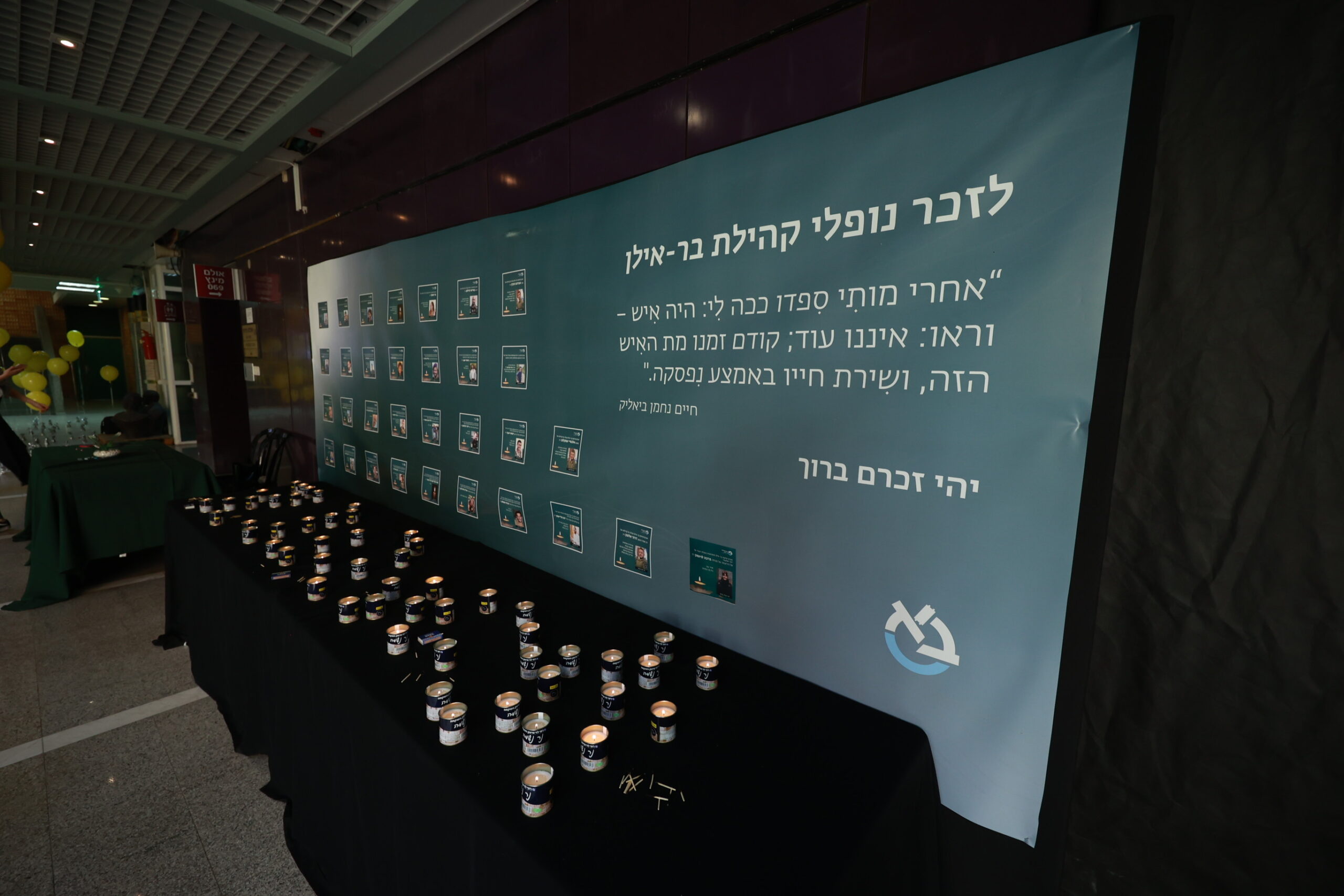Campus Recruitment
University War-Related Initiatives
Campus Recruitment
In the weeks and months following the October 7th attack, Bar-Ilan students, faculty, and staff harnessed their resources and expertise to help those affected by—and those fighting—Israel’s war for survival.
Cultivating Hope
Agricultural Volunteerism
To keep farms throughout the country alive after thousands of foreign agricultural workers left Israel—and thousands of Israeli agricultural workers were called into the reserves—Bar-Ilan’s Human Resources Department and Worker’s Committee, together with the School of Sustainability and the Environment and the Office of the Campus Rabbi, organized dozens of groups of student and staff volunteers to harvest their produce. The bounty was then sold at a series of campus farmer’s markets, held near the Mintz Hall memorial for those who were murdered on October 7th.
Treating Trauma
Emotional and Psychological Support
Within days of October 7th, the Department of Psychology’s Danielle Sonnenfeld Clinic and Institute for Trauma and Loss Therapy, the Maria and Joel Finkle Psychological Services Unit, The Louis & Gabi Weisfeld School of Social Work, and the Program for Visual Art Therapy established a hotline for emotional support staffed by 140 Bar-Ilan volunteers from the fields of psychology and social work. The hotline handled nearly 2,000 calls from members of the Bar-Ilan community, along with their friends and families. The school’s academic staff also volunteered to provide free-of-charge therapeutic interventions—both in person and virtually—to individuals, families, soldiers, and even entire communities who survived the Hamas attack, were evacuated from their homes, or suffered from war-related PTSD. Researchers also offered free training for more than 450 IDF mental-health officers in identifying and treating PTSD.
Finally, a number of school lecturers volunteered in key positions of national influence. Dr. Yael Shoval Zuckerman and Prof. Sarah Friedman, for example, were members of the Ministry of Health’s National Commission on Post Trauma, and Shoval Zuckerman—in the framework of her service in the IDF reserves—assisted the team that treated released hostages. Dr. Tsuriel Rashi was also appointed deputy head of the Diaspora Affairs Ministry’s Public Diplomacy Campaign.
Raising Spirits
Lectures for the Public
Recognizing that Jewish texts and philosophy have always served as a source of comfort for Jews in times of suffering and distress, the Faculty of Jewish Studies offered a series of public lectures throughout the fall that addressed issues of faith, bereavement, and national isolation by means of different angles and thinkers in Jewish history. Lecturers included Prof. Dov Schwartz, the Israel Prize winner and scholar of the philosophy of Rabbi Joseph Dov Soloveitchik, and Prof. Miron Isaacson, the poet, author, and Chair of the Joseph and Norman Berman Department of Hebrew Language and Literature.
Along with the Faculty of Jewish Studies, lecturers from across the University offered lectures open to the public—and available on Bar-Ilan’s YouTube channel—on topics that responded to national concerns and needs. Called “Coping Together,” the series included a lecture by Prof. Rivka Tuval Mashiach on personal and national trauma; Prof. Einat Metzl on creative methods for coping with grief and anxiety; Prof. Motti Neiger on coping strategies in times of emergency; Dr. Gal Yavetz on the dangers of fake news on morale; and Dr. Aluma Reiss on lessons in resilience from the world of conflict mediation.
 The dedication of the Garden of Returning Hostages, with (from left to right) Prof. Noa Vilchinksy, Vice Rector Prof. Arie Reich, Chief Marketing Officer Naama Gat, President Prof. Arie Zaban, Prof. Eitan Okun, and Department Manager-Deputy Vice President of Marketing Avital Haruv.
The dedication of the Garden of Returning Hostages, with (from left to right) Prof. Noa Vilchinksy, Vice Rector Prof. Arie Reich, Chief Marketing Officer Naama Gat, President Prof. Arie Zaban, Prof. Eitan Okun, and Department Manager-Deputy Vice President of Marketing Avital Haruv.
Showing Solidarity
War-Commemoration Events
On the fifth night of Hannukah, the Bar-Ilan community came together to spread light amidst the darkness at an event to commemorate the murdered and the fallen and pray for the safe return of the hostages. The event featured Prof. Eitan Okun of the Mina and Everard Goodman Faculty of Life Sciences and the Leslie and Susan Gonda (Goldschmied) Multidisciplinary Brain Research Center, who spoke about his experiences battling Hamas terrorists on October 7th; Prof. Noa Vilchinsky of the Department of Psychology, who discussed the role of volunteerism in building personal and organizational resilience; and students who served in the IDF’s reserve forces, who shared the challenges of returning from military duty to student life. At the event’s close, community members were invited to plant 136 yellow snapdragons and chrysanthemums—some of which were purchased from nurseries in the South—in the Garden of the Returning Hostages, a symbol of hope and a call for the captives’ swift return. dedicated to the hostages’ return. Finally, on the seventh night of Hannukah, the Department of Music’s Alumni Choir performed for evacuees at Jerusalem hotels.
To mark 100 days of war and the hostages’ captivity, Bar-Ilan held events on both the Ramat Gan and Safed campuses to honor the University’s fallen soldiers, pray for the safe return of the hostages, and derive strength from a strong and resilient community. After hearing speeches from Rector Prof. Amnon Albeck and Dean of the Azrieli Faculty of Medicine Dr. Orly Avni; personal stories from relatives of the hostages; and songs and poetry from guest artists, University students, faculty and staff released one yellow balloon for each of the remaining captives.


Protecting Rights
The Legal Clinics
The Faculty of Law’s Legal Clinics, whose staff of more than 30 faculty graduate students provide free or low-cost legal assistance to disadvantaged populations, focused its efforts in the months since October 7th on advising those directly affected by the war of their rights and protections under the law. Applicants included evacuees who were unable to make it to their places of work and individuals left without work because of their employers’ situation. Clinics’ staff also collaborated with Israel’s National Insurance Agency and Tax Authority to help applicants pursue their claims effectively.
Closing Gaps
The Department of Translation and Interpreting Studies
In the wake of October 7th, nearly half a million Israelis—among them families whose loved ones were murdered, injured, or abducted—struggled to obtain key medical, emotional, and logistical services on account of their lack of Hebrew. To help them secure needed services, the Department of Translation and Interpreting Studies, under the direction of Drs. Michal Schuster and Tanya Voinova, launched an emergency hotline that offers interpreting services in 11 languages, including Arabic, Russian, Amharic, Tigrinya, Portuguese, and Yiddish. Incoming calls were directed to an interpreter in the required language, and the interpreter stayed on the line throughout calls with relevant assistance providers.